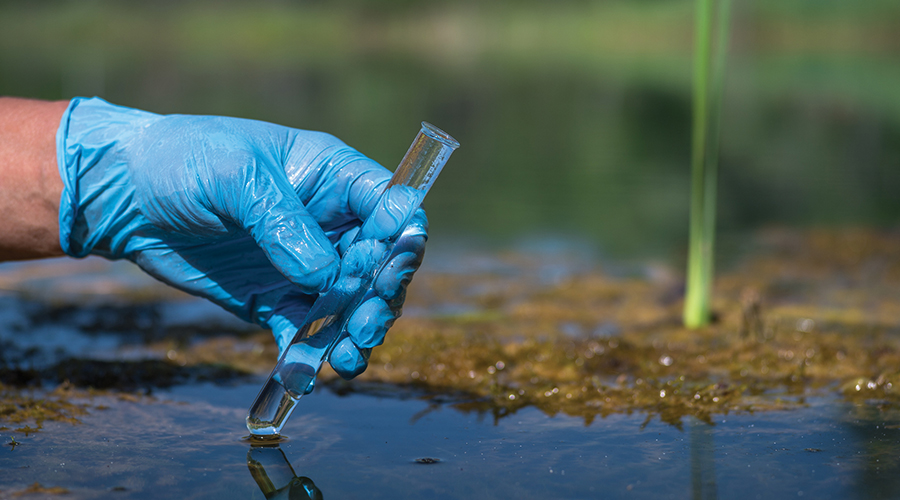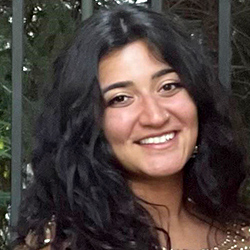
“My goal was a job in the environmental science field with ‘scientist’ in the title,” quips Rupika Ketu (Master of Environmental Studies ’21) on her motivation to pursue a master’s degree. After earning her bachelor’s in Environmental Policy, Institutions, and Behavior from Rutgers University, she started her career as a policy advocate at the Clean Air Council in Philadelphia, protecting waterways from natural gas pipeline construction. She was sure she wanted to continue in a career protecting the environment, but she was interested in preparing for more scientific fieldwork. “The MES environmental biology concentration offered the technical coursework that I was looking for, and I was impressed by all the research opportunities Penn offered,” she says.

Once Rupika matriculated, she pursued a curriculum of science-based courses and field research. In addition to core environmental studies classes, the flexible program allowed her to take a hydrology course filled mostly with applied geosciences graduate students, an ecology course offered through the biology department, and an ecological restoration course at the Weitzman School of Design’s landscape architecture department.
“The hydrology course was the hardest for me,” she admits, “but I’m so happy I took it because when I’m talking to geologists and hydrologists about groundwater studies or well installations in my current job, the coursework comes in handy.” Today, Rupika is a life scientist at the Environmental Protection Agency (EPA), serving as a remedial project manager at several Superfund sites in the New York metropolitan region. She first learned about Superfund sites in the ecological restoration course. “My job covers a little bit of everything,” she says, “which is kind of like the MES program, so it works out perfectly.”
The most unique part of the MES, Rupika recalls, is the connections students can make. “If there’s a specific topic or type of job you’re interested in, the professors know who to send you to.” When Rupika expressed interest in water pollution research, for example, her concentration advisor and wetland course instructor Dr. Sally Willig put her in touch with a research advisor at the Water Center at Penn. That connection led Rupika to a graduate assistantship at the center. “I worked on the Swimmable, Fishable, Drinkable Initiative,” she says, which is an initiative under the Clean Water Act aimed at improving the water quality of the lower Delaware River. “The research involved reviewing current water quality and bacterial trends, identifying current and future uses on and around the river, and reviewing long-term control plans to get a sense of the changes in stormwater and wastewater discharges to the river,” she says.
“The Water Center also helped me get my foot in the door for a graduate internship at the Philadelphia Water Department where I conduct the research required for my capstone on microplastics in freshwater,” she continues. Rupika chose the topic to get field experience in emerging contaminants—which are chemicals of growing concern as environmental pollutants. She partnered with Water Center researchers on her capstone project, too, and even received funding through their Student Research Support program. “Everything was connected and played out really well,” she says.
Rupika started her new career as an EPA life scientist just after graduating from Penn in August 2021. Remedial project management with the Superfund program has proved to be a good match for Rupika’s broad knowledge of ecological topics and her interest in contamination remediation. “I work on Superfund sites in the Mega Projects Section, which are characterized by complexity and technical challenges,” she says. Each site requires a unique remedial design and action for cleanup, which may require insights into contamination in various environmental media, remedial technologies, environmental law, and more. “At Penn, I was able to do technical research and get out into the field, which was great experience for what I do now,” she says. “Without the MES I wouldn’t be in this job. Penn opened doors for me to achieve my goal. Now I have ‘scientist’ in my title, so I'm happy,” she adds. Every project is challenging, but Rupika notes “we’re reducing risk for people and wildlife, and the contamination is getting cleaned up. That’s the most satisfying part for me.”
This work is not a product of the United States Government or the U.S. Environmental Protection Agency and does not necessarily represent the views of the United States or U.S. EPA.





